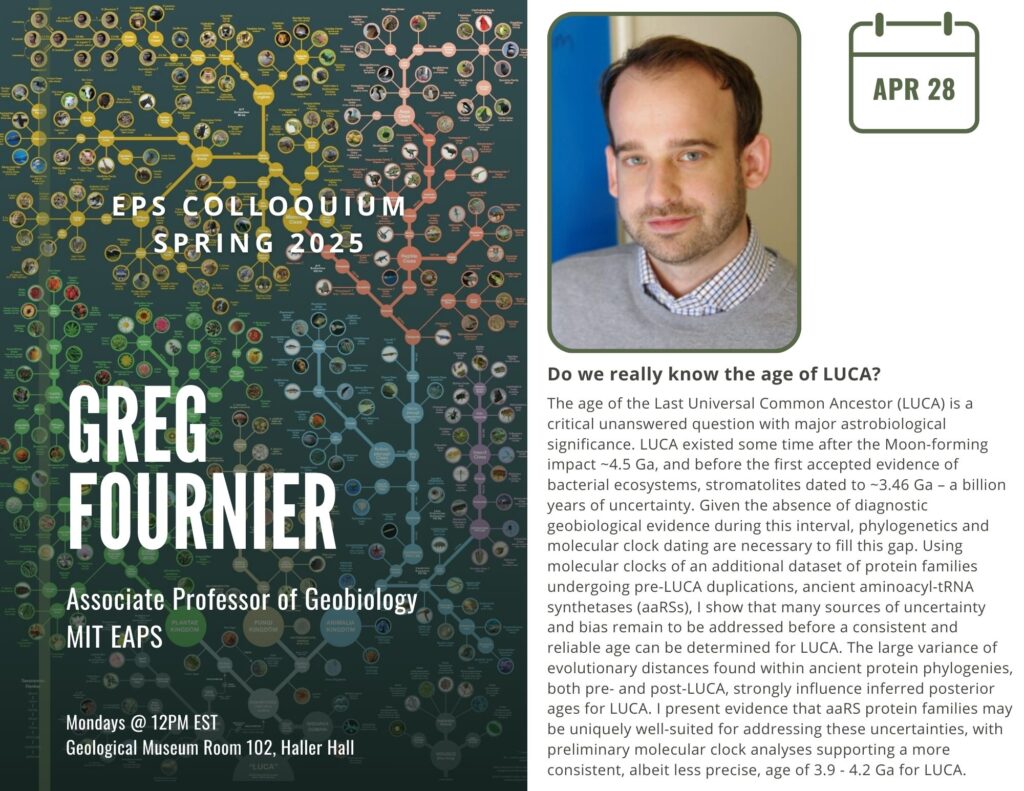EPS Colloquium – Greg Fournier, MIT
Do we really know the age of LUCA?
The age of the Last Universal Common Ancestor (LUCA) is a critical unanswered question with major astrobiological significance. LUCA existed some time after the Moon-forming impact ~4.5 Ga, and before the first accepted evidence of bacterial ecosystems, stromatolites dated to ~3.46 Ga – a billion years of uncertainty. Given the absence of diagnostic geobiological evidence during this interval, phylogenetics and molecular clock dating are necessary to fill this gap. Molecular clocks for dating LUCA depend upon alignments and phylogenies of ancient universally conserved protein families, evolutionary branch rate models, and absolute and relative time calibrations. However, published age ranges for LUCA remain inconsistent and highly sensitive to multiple sources of bias associated with each of these components. Recently, it has been proposed that these difficulties have largely been surmounted, with an associated age for LUCA of ~4.09 – 4.33 Ga, informed by ancient, pre-LUCA protein family duplications. Using molecular clocks of an additional dataset of protein families undergoing pre-LUCA duplications, ancient aminoacyl-tRNA synthetases (aaRSs), I show that many sources of uncertainty and bias remain to be addressed before a consistent and reliable age can be determined for LUCA. In particular, the large variance of evolutionary distances found within ancient protein phylogenies, both pre- and post-LUCA, strongly influence inferred posterior ages for LUCA. I present evidence that aaRS protein families may be uniquely well-suited for addressing these uncertainties, with preliminary molecular clock analyses supporting a more consistent, albeit less precise, age of 3.9 – 4.2 Ga for LUCA.
To be added to the EPS colloquium mailing list, please contact Caroline Carr at carolinecarr@fas.harvard.edu

Greg Fournier is an Associate Professor of Geobiology in the Earth, Atmospheric, and Planetary Science Department at MIT. He obtained his undergraduate degree in genetics, cell and developmental biology from Dartmouth College, and his PhD in genomics and genetics from the University of Connecticut, followed by a NASA Astrobiology Institute Postdoctoral Fellowship at MIT. The Fournier lab integrates molecular phylogenetics with geobiology and planetary science, in order to investigate the co-evolution of life and the environment across Earth history. These approaches provide novel insights into the microbial history of life on Earth not preserved in the fossil record.

